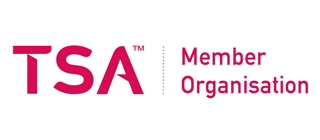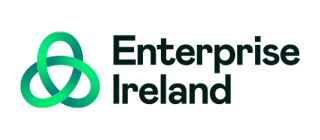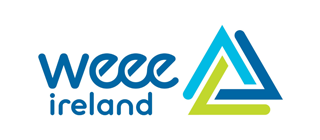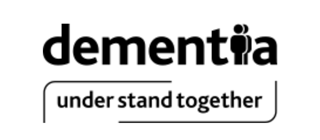
Everyone deserves to live safely and independently in their own home. For people living with disabilities, smart home adaptations can be transformative, not only improving quality of life, but also easing the everyday challenges that come with limited mobility, sensory or chronic health conditions.
Now, with the smart technology that’s available, it’s possible to reimagine the home as a place that can be tailored to each person's unique needs or abilities. It’s reported in Ireland that 349,155 people have difficulty with basic physical activities. This highlights the need for home adaptions.
Enabling Greater Independence Through Technology
Smart home technology has come a long way in recent years. From voice-controlled lighting to automatic door openers, innovations can now be tailored to suit the individual and their needs.
At HaloCare, we consider ourselves the leader in Healthtech. We’ve collaborated with the big innovators such as Enterprise Ireland, as part of their Spotlight on Innovation Campaign and have been shortlisted for our innovative solutions in the ESG Business & Finance Awards and beyond. What sets HaloCare apart is our innovative use of technology - not just to deliver better care at home, but to proactively support our clients' health and well-being
Here are a few examples of how our solution is proactively helping people with disabilities live more independently:
1. Looking after appliances and Environmental Control
Managing everyday household appliances can be a challenge for individuals with limited mobility or those living with memory conditions.
HaloCare’s Appliance Management solution allows for Smart Sensors to be added to everyday household appliances such as taps, the oven or kettle. The sensors can detect is the appliance has been used or has been left on; the Care Hub will be alerted in this circumstance and can promptly intervene.
HaloCare also monitors changes in home temperature to help ensure clients remain comfortable and includes flood detection for swift intervention when needed. This gives the client’s Circle of Care peace of mind, knowing that if anything unusual occurs at home, the Care Hub team will be alerted immediately.
2. Long-lie detection and panic buttons
Falls are a leading cause of injury among people with physical disabilities. HaloCare's discreet, non-intrusive fall detection technology uses motion detection to learn the clients home environment, which means if there’s a prolonged period of no movement detected on the ground and out of the ordinary, HaloCare will intervene.
HaloCare has several wearable solutions, designed to give clients the confidence to live independently while being safe. Our wearable solutions include:
HaloGo Watch: HaloGo is a wearable device with built-in GPS function, fall down sensors and alerts. For clients that are more mobile but still need extra support when out and about, HaloGo can give peace of mind. Once the emergency S.O.S feature has been activated, a member of the Care Hub team will be in touch.
HaloCare Pendant: For clients who prefer a wearable option, the lightweight HaloCare Pendant provides added reassurance. With a simple press, it instantly alerts the Care Hub team for immediate support.
3. Vital Sign Monitoring
For people with chronic conditions or cognitive impairments, real-time data can provide an extra layer of security. HaloCare tracks key health and behavioural indicators within the home, allowing for early intervention when something is amiss. HaloCare’s Vital Sign Monitoring solution allows for the management of the following vitals at home;
- Blood pressure
- Body temperature
- Oxygen levels via the Pulse Oximeter
HaloCare can also support with medical reminders at home, making medication management easier, especially those living with memory conditions.
4. Communication made easier
Independence doesn’t mean isolation. HaloCare bridges the gap between clients and their Circle of Care with our easy-to-use communication tools.
- HaloPad: The HaloPad is designed to reduce feelings of loneliness and social isolation. Clients can regularly have video or phone calls, at the touch of a button, with friends and family, and enjoy photo sharing all from a safe, secure central location.
- The HaloPad features large buttons and a simplified interface, a charging dock that eliminates the need for cables which means the user can enjoy the device hands free. This means the HaloPad can be more comfortable for those living with painful joints or conditions like arthritis and can also be beneficial for those with limited hand mobility.
Creating a Truly Accessible Future
Smart home adaptations are not just about convenience — they’re about dignity and inclusion. At HaloCare, we’re proud to play a role in shaping homes that support every individual’s right to live with confidence and control.
Our mission is simple: To empower people of all ages and abilities to live quality, independent lives in their own homes, supported by innovative technology and passionate, caring people.
Get in touch with us today to learn more about how HaloCare can transform your loved one's home into a safer, smarter space.
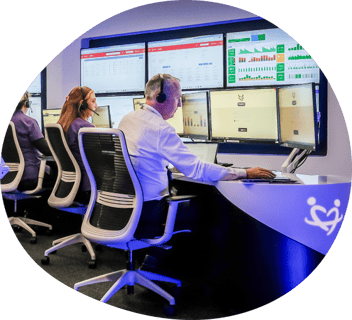

-3.jpg?width=352&name=221109HC06_Halo_Social_IWD_Hubspot_Image_V01%20(1)-3.jpg)

